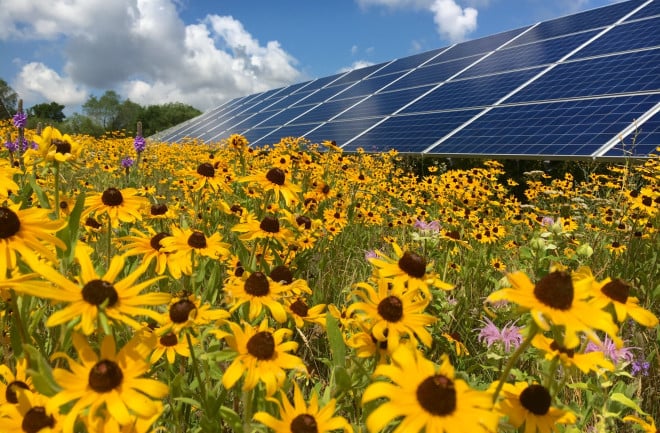
Solar Energy UK has largely welcomed this year’s Autumn Statement, stating it will provide a “shot up the arm” for solar power and renewables alike.
One of the most welcomed aspects of the Autumn Statement, read by chancellor Jeremy Hunt at the House of Commons yesterday (21 November) was an exemption on the 45% windfall tax imposed on renewable projects via the Electricity Generator Levy (EGL) on “extraordinary returns” which was extended and expanded in last year’s Autumn Statement. Following the announcement all new renewable generation projects and extensions to existing projects that have had a “substantive decision to proceed” on of after 22 November will be exempt from this tax.
Full expensing made permanent
Another measure announced in the Autumn Statement was that full expensing is to be made permanent. Announced in this year’s Spring Statement, full expensing initially replaced the government’s ‘super deduction’ measures unveiled in 2021, by allowing companies full expensing for three years from 1 April 2023.
This has now been made permanent with business able to “write off the full cost of qualifying plant and machinery investment” before paying Corporation Tax. Solar Energy UK praised this measure, stating that it “should help corporate investment in solar and battery energy storage systems (BESS)”.
Speeding up planning
Hunt also revealed an update to guidance for nationally significant infrastructure projects (solar farms with a 50MW capacity or more). Through the National Policy Statement for Renewable Energy Infrastructure, solar farms will now be seen as critical national priority (CNP), which ought to simplify the process of obtaining planning permission for projects.
In another positive move for solar planning, the Autumn Statement included plans to allow developers to pay local authorities for faster planning decisions, from next year.
“From next year, working with the Communities Secretary, I will reform the system to allow local authorities to recover the full costs of major business planning applications in return for being required to meet guaranteed faster timelines,” said Hunt.
“If they fail, fees will be refunded automatically with the application being processed free of charge.”
“Taken as a package, today’s announcements add up to a real shot in the arm for solar power and renewable energy in general,” said Chris Hewett, chief executive of Solar Energy UK.
Support for storage?
Despite the range of welcome measures, Solar Energy UK noted that the Autumn Statement “missed at least one open goal to support decarbonisation and the economy”.
This missed opportunity is removing anomalous application of VAT to retrofitted domestic BESS.
At present, only homes that have domestic BESS fitted as part of a new solar installation can benefit from the xer-rated VAT which solar panels and heat pumps already benefit from as of last year’s Spring Statement. Homes that already have a solar installation and wish to retrofit a BESS however, will still have to pay 20% VAT for the asset.
Solar Energy UK called the mission “strange” in the context of the Treasury opening a consultation in March on removing this exemption.

